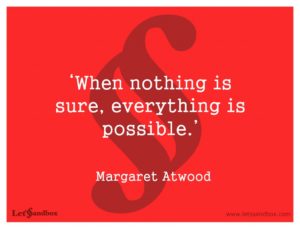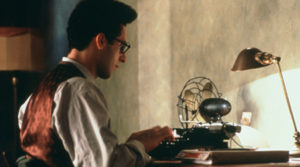A few years ago I heard prize-winning Michigan author Loren D. Estleman dismiss writer’s block at a writers’ conference. The problem with even using the term, he said, is that it re-frames and distorts a basic reality of every writer’s life: getting stuck.
I totally agree. When you say that you have writer’s block, you turn a minor problem into something major like depression. Suddenly you’re beset by a grave affliction and a normal, unremarkable part of the writing process can become debilitating.
I’ve felt this way through my entire career as an author, through 26 books in many genres and hundreds of stories, essays, reviews and blogs. Like Estleman, I believe that all of us writers sometimes get stuck, no matter how experienced we are — and Estleman’s published more than twice as many books as I have. Stuck isn’t a bad thing. It just means you haven’t worked something out, you haven’t answered some question in the book, or maybe you’re headed in the wrong direction.
Whenever I’m stuck, I do what Estleman suggested and what I’ve advised my creative writing students over the years: I leave the writing alone and don’t obsess about it.
If you’re stuck, don’t panic. Give the problem to your subconscious. You can work on something else, or not do any writing at all. Focus on something unconnected to writing: cooking, a Zoom chat with friends, walking your dog, home repairs, a car ride, gardening, working on your tan, music, reading a new book by your favorite author — anything that can distract and absorb you completely and make you feel good.
Of course, sometimes being stuck can mean that you’re afraid of what you want to write, afraid of revealing too much about yourself (or someone else), afraid of what people might think. That fear of exposure is shame, or the dread of shame. Calling it writer’s block confuses the issue, disguises what’s really the problem.
Unfortunately, there’s a small industry devoted to helping people overcome “writer’s block,” to keep them from turning into Barton Fink, stuck on that one sentence. And because the culture loves stories about blocked writers like The Shining, there’s a perverse kind of glamor associated with this “condition.” It’s dramatic, it’s proof of how serious a professional you are. And hey, writers are crazy anyway, so of course they can’t do their jobs, of course they’re basket cases.
Let’s face it, since most people hate to write, especially in this age of tweets and texting, “writer’s block” really connects with non-writers. If someone asks how your writing is going, you risk sounding arrogant if you say, “Terrific! My new book is a blast!” Saying that you have writer’s block brings you back to earth. It comforts people who don’t write, because it confirms their perception of writing as drudgery and even torment. That’s no reason to let yourself be bullied by a misnomer.
Lev Raphael is the prize-winning author of Writer’s Block is Bunk and 25 other books in genres from memoir to mystery. He mentors writers, edit manuscripts, and teaches tailored writing workshops at writewithoutborders.com




Agreed. Most non-writers want writers to have writer’s block. Writer’s block seems like an excuse to avoid admitting “I don’t know what to say yet.”
Had to stare at the ceiling for a minute to come up with that.
Thanks for the post!